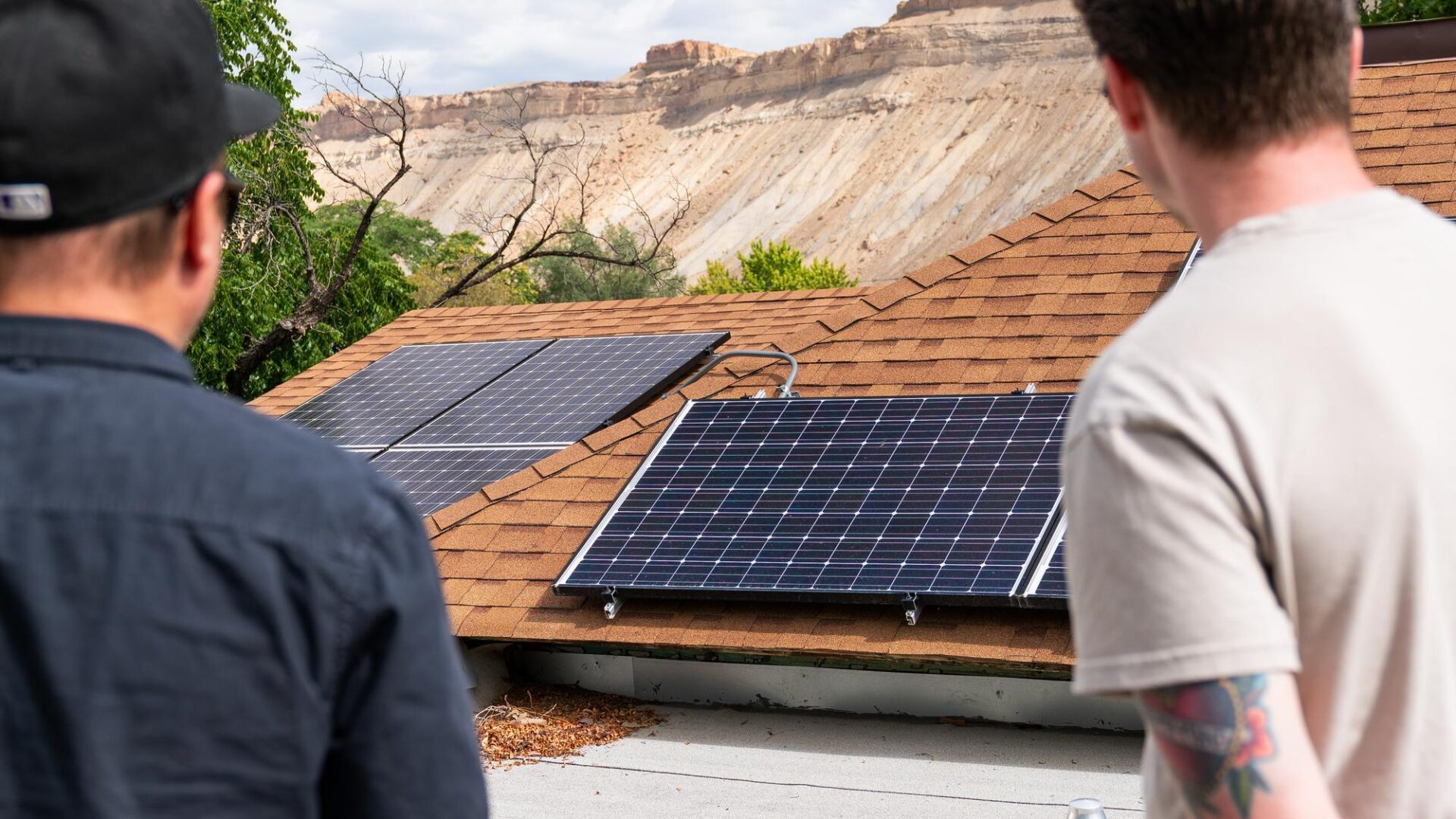Your solar and battery system could power your neighborhood — and earn you money
- Energy democracy & policy,
- Stories

Your solar investment just got more valuable. Colorado is laying the groundwork for an exciting new program that could help solar owners with battery storage maximize the benefits of their investment: Distributed Power Plants (DPPs). On August 26, the Colorado Public Utilities Commission will hold a critical hearing to determine the future of these programs and whether this program truly serves ratepayers or just benefits monopoly utilities.
What are Distributed Power Plants?
A Distributed Power Plant (DPP for short) is essentially a decentralized electricity generation system. It is a network of homes and businesses with solar panels and batteries that work together to form a single power source. With DPPs, when your solar panels produce more electricity than your home needs, or when your batteries store extra energy, that power doesn’t go to waste. Instead, it can be shared with your neighbors, especially when demand on the grid is high or the power goes out.
Together, connected homes form a local network that supports the energy grid, keeps communities running during outages, and reduces the need for expensive backup power from utility companies. And because you’re contributing energy when it’s needed most, you get paid for the power you provide.
Imagine a hot summer afternoon in Grand Junction or a frigid winter night in Nederland. Either air conditioners or heaters are running full blast, lights are on, and the grid is under pressure. Instead of firing up a costly and polluting backup power plant, the utility can tap into energy stored in local solar batteries. That energy helps stabilize the grid and keeps homes cool without triggering a blackout. Since your solar and battery system provided power when it mattered most, you get paid for your contribution.
That’s how a DPP works: neighbors helping neighbors, all powered by solar.
Why DPPs matter for solar owners (and everyone else too!)
With the federal solar tax credit ending after 2025, Colorado’s Distributed Power Plant program offers a much-needed alternative to keep solar financially viable at the state and local level. Rather than waiting for federal policy changes, Colorado can lead the way in creating innovative programs that help solar owners maximize their investment returns and make renewable energy more accessible to all Coloradans.
Here’s the catch: the rules are being written right now
A new Colorado law requires certain utilities to launch DPP programs, but the way these programs are structured is still up for debate. The August 26th PUC hearing on Public Service Co. of Colorado’s (also known as Xcel) proposed Aggregated Virtual Power Plant (AVPP) program will help determine how easy it is for you to participate and how fairly you are compensated. Public Service Co. of Colorado is already weighing in, and they are advocating for rules that work in their favor.
This hearing is your opportunity to speak up and help ensure these programs are designed to serve the people who will actually use them: solar owners and ratepayers across Colorado.
Learn More: Watch a recording of our latest webinar to learn more about the importance of DPPs and how you can get involved. This session provides essential information about DPPs from expert Shannon Anderson, SUN’s Distributed Power Plant Policy Director, and others in the field.
Don’t let others decide the future of solar in Colorado without you. Your participation in either—or both—of these opportunities will help shape policies that affect all Coloradans
Get the latest on solar straight to your inbox.
Fight for your solar rights.
Everyone has the right to go solar. Spread the sunshine nationwide and in your local community by taking action, joining events, and more.